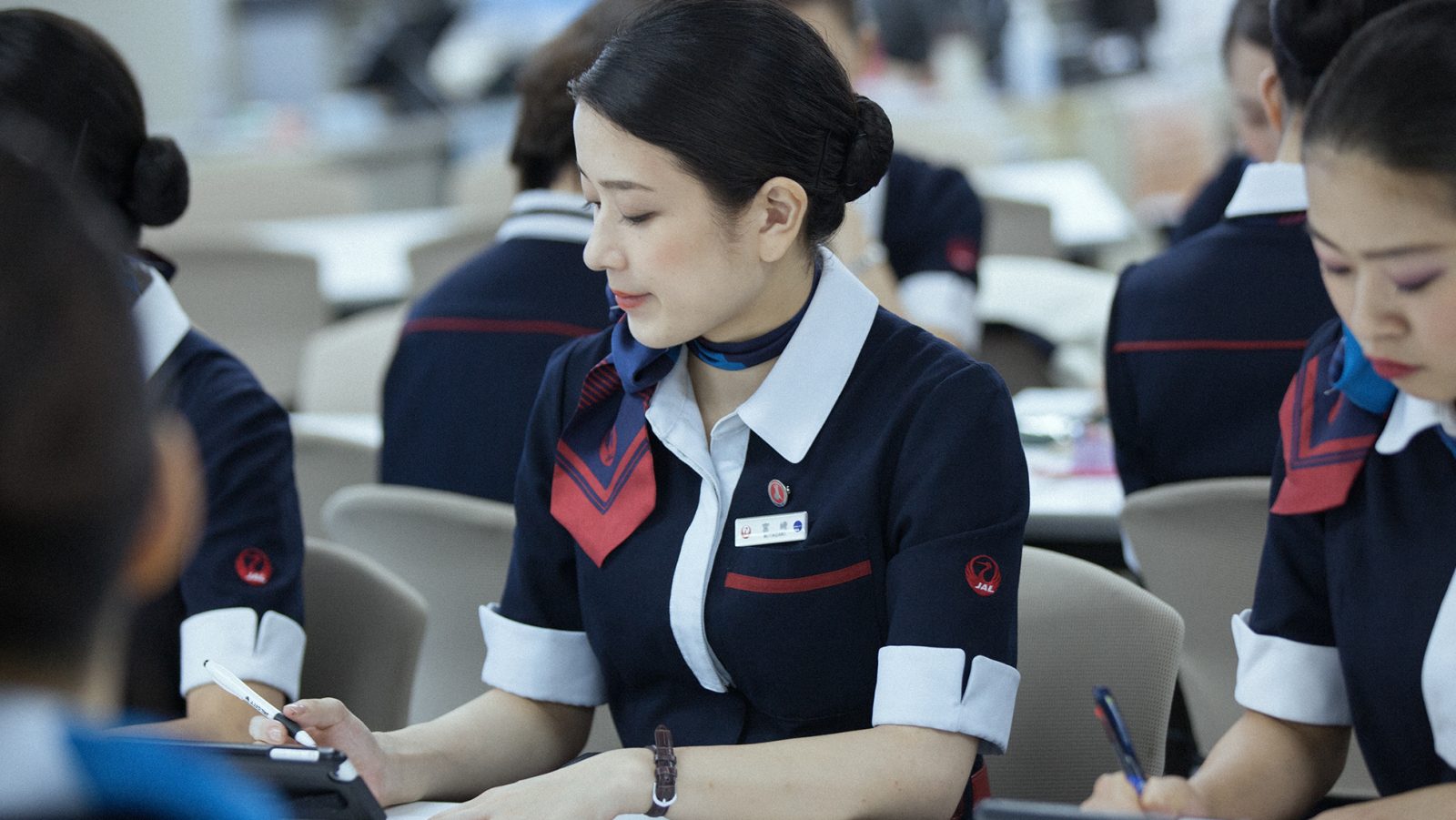
It may come as no surprise that male cabin crew working at Japenese airlines are somewhat of a rarity but new research by the Japan Times English language newspaper reveals that men make up just 1% of the entire cabin crew workforce at both Japan Airlines and ANA – the two largest airlines in the country. The stark underrepresentation of male flight attendants is, thankfully, changing but very slowly.
Highlighting just how much work still needs to done, StarFlyer a mid-sized low-cost carrier based in Fukuoka prefecture currently has just eight men among its 160 cabin crew members. At 5% representation, that’s well above the larger airlines in the country but far from perfect. Starflyer has set itself a target of hiring around six more male cabin crew by next summer.
“The use of male cabin attendants is effective in impressing upon passengers that we offer a different service from big airlines,” explained a spokesperson for the airline in a statement provided to the Japan Times.
One of Starflyer’s male cabin crew told the paper: “Male and female flight attendants have a different sense for passenger needs, and by combining both genders, the quality of service improves.” It’s a shame that Koichi Ito’s sentiments haven’t been fully embraced by the likes of ANA just yet.
An anonymous source from an unnamed domestic airline, told the publication that Japenese airlines had traditionally employed young female flight attendants to appeal to middle-aged male business passengers – or as their referred to in Japan, Salarymen. Sexism, it appears, is still very much alive and well in Japenese business culture.
The Japenese subsidiary of Australia’s Jetstar is doing slightly better in hiring male cabin crew – current figures put male representation at the airline at 15% but it’s a long way off the reported 40% representation that Singapore Airways has achieved. Meanwhile, in terms of European carriers, a spokesperson for Air France told the paper that men make up 30% of their flight attendants (équipage de cabine).
Globalisation has arguably played a part in opening up a field of work to Japanese men that just a few years they may have seemed completely off limits. There are, though, some niggling issues with what skills and benefits they bring to the role – the Japan Times interviewed several contributors who saw the most value of male cabin crew as loading heavy luggage into overhead bins and dealing with drunk or disruptive passengers.
True, some men may be very good at these jobs but for Japenese airlines to progress, they need to start recognising that these skills aren’t exclusive to men. Now, what would be really interesting is how well female pilots are represented in the flight deck.
Mateusz Maszczynski honed his skills as an international flight attendant at the most prominent airline in the Middle East and has been flying ever since... most recently for a well known European airline. Matt is passionate about the aviation industry and has become an expert in passenger experience and human-centric stories. Always keeping an ear close to the ground, Matt's industry insights, analysis and news coverage is frequently relied upon by some of the biggest names in journalism.







